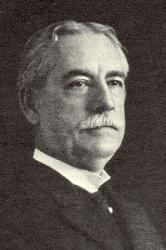Planning worship?
Check out our sister site, ZeteoSearch.org,
for 20+ additional resources related to your search.
- |
User Links
Person Results
John Henry Yates
1837 - 1900 Author of "Coming, Precious Savior" Rev. John H. Yates, was born in Batavia, N. Y., November 31, 1837. He was educated at the Batavia Union School, but at the age of eighteen was forced to engage in business as a clerk to help maintain his aged parents. For several years he was with his brother, Thomas Yates, in the shoe business; afterwards, for seven years, salesman in G. B. Worthington's hardware store. In 1871 he took charge of the fancy goods department in E. L. & G. D. Kenyon's double store and remained there fifteen years. In 1886 he was called to be local editor of the Progressive Batavian, and filled the position nearly ten years. When twenty-one years of age Mr. Yates was licensed to preach in the Methodist church, but was not ordained until 1897. For nearly seven years now he has been pastor of the Free Will Baptist church at West Bethany. At about the age of twenty, Mr. Yates began writing poetry at the solicitation of his mother, and very soon his ballads and hymns were printed and sung all over the land. In 1891, Ira D. Sankey, the famous singer, engaged Mr. Yates to write gospel hymns for him, solely; he was led to do this because of the wonderful success of Mr. Yates's old man ballad, the "Model Church," which has been sung all over the world. After the contract with Mr. Sankey. the following hymns soon appeared from the pen of Mr. Yates: "Harbor Bell," "Faith is the Victory," "Beautiful Hills," "Our Name's in Heaven," and about twenty others. In December, 1897, Mr. Yates issued a volume of ballads and poems, a book of 117 poems and 226 pages, which are now nearly all sold. On the occasion of the dedication of the old land office in 1894, Mr. Yates wrote the dedicatory poem, "Our Ancient Landmark," a production of unusual merit.
From Our County and it's people: descriptive work on Genesee County, New York, edited by: F. W. Beers (J.W. Vose & Co., Publishers, Syracuse, N. Y. 1890)
John Henry Yates
B. C. Unseld

1843 - 1923 Composer of "[We are coming, precious Saviour, in the fervor of our youth]" in Royal Hymnal Benjamin Carl Unseld, 1843-1923
Born: October 18, 1843, Shepherdstown, West Virginia.
Died: November 19, 1923.
Buried: Elmwood Cemetery, Shepherdstown, West Virginia.
After leaving school at age 14, Unseld worked as a clerk in a country store. He received his first musical instruction around age 15, from a companion who had attended a singing school. He was shown the representation of the scale in the old Carmina Sacra, and had it sung for him. At the friend’s suggestion, he got permission from his pastor to practice on the church organ. Since both boys worked, their only chance to practice was after the store closed at 9:00 p.m., and occasionally at noontime. They went to the church together and took turns, one at the keyboard and the other at the bellows.
Shortly after the Battle of Antietam in September 1862, some of which Unseld witnessed, he left home and became a bookkeeper in the general offices of a railroad in Columbia, Pennsylvania. He sang in a choir, and gained further practice reading music. He rented a melodeon and spent much time in his room improvising on it. He bought a copy of Woodbury’s Harmony and Musical Composition, and studied it as well as he could without a teacher. He accepted an invitation to play the organ in the local Methodist church, on the condition that he received the tunes early in the week so he could learn them. This was his first position as an organist.
In the spring of 1866, he entered the Musical Institute in Providence, Rhode Island, conducted by Eben Tourjée (founder of the New England Conservatory in Boston, Massachusetts, and father of Lizzie Tourjée). There he studied voice, piano, organ, and harmony. After learning of Unseld’s business experience, Dr. Tourjée made him secretary of the school; in 1867, Unseld became the first secretary of the New England Conservatory.
Starting in 1870, Unseld attended schools led by Theodore F. Seward. There he met George Webb, Lowell Mason, James McGranahan, Charles Case, and other notables in the music community. In 1874, Unseld taught at Fisk University in Nashville, Tennessee, and helped train Fisk’s Jubilee Singers for their European trip. In 1877 and 1878, he was organist and choir master at St. James’ Episcopal Church, Lancaster, Pennsylvania.
In 1879, Unseld moved to New York City, and for 15 years taught, led choirs, composed and published. In New York, his musical headquarters was the publishing house of Biglow & Main Company, where he was in almost daily contact with the popular composers and teachers of the day: Ira Sankey, Horatio Palmer, Hubert Main, Robert Lowry, et al. In 1894, Unseld moved to Cincinnati, Ohio, and worked as an editor for the Fillmore Music House. In 1898, he moved to Dayton, Ohio, and worked in a similar capacity for the Lorenz Publishing Company. He moved back to New York City in 1901, then to Hagerstown, Maryland in 1905. He and his wife Sallie were apparently living in Tennessee as of 1920. Unseld’s works include:
The Choral Standard (New York: Fillmore Brothers, 1895)
Progress in Song, with E. T. Hildebrand (Cincinnati, Ohio: The Fillmore Brothers Company)
Unseld was inducted into the Southern Gospel Music Association Hall of Fame in 2004.
Sources--
Hall, pp. 239-44
Music--
Ancyra
Euphemia
He Is Risen
Hordville
Make Haste!
Meschach
Twilight Is Falling
Unseld
Wonderful Message
--www.hymntime.com/tch
B. C. Unseld


 My Starred Hymns
My Starred Hymns


